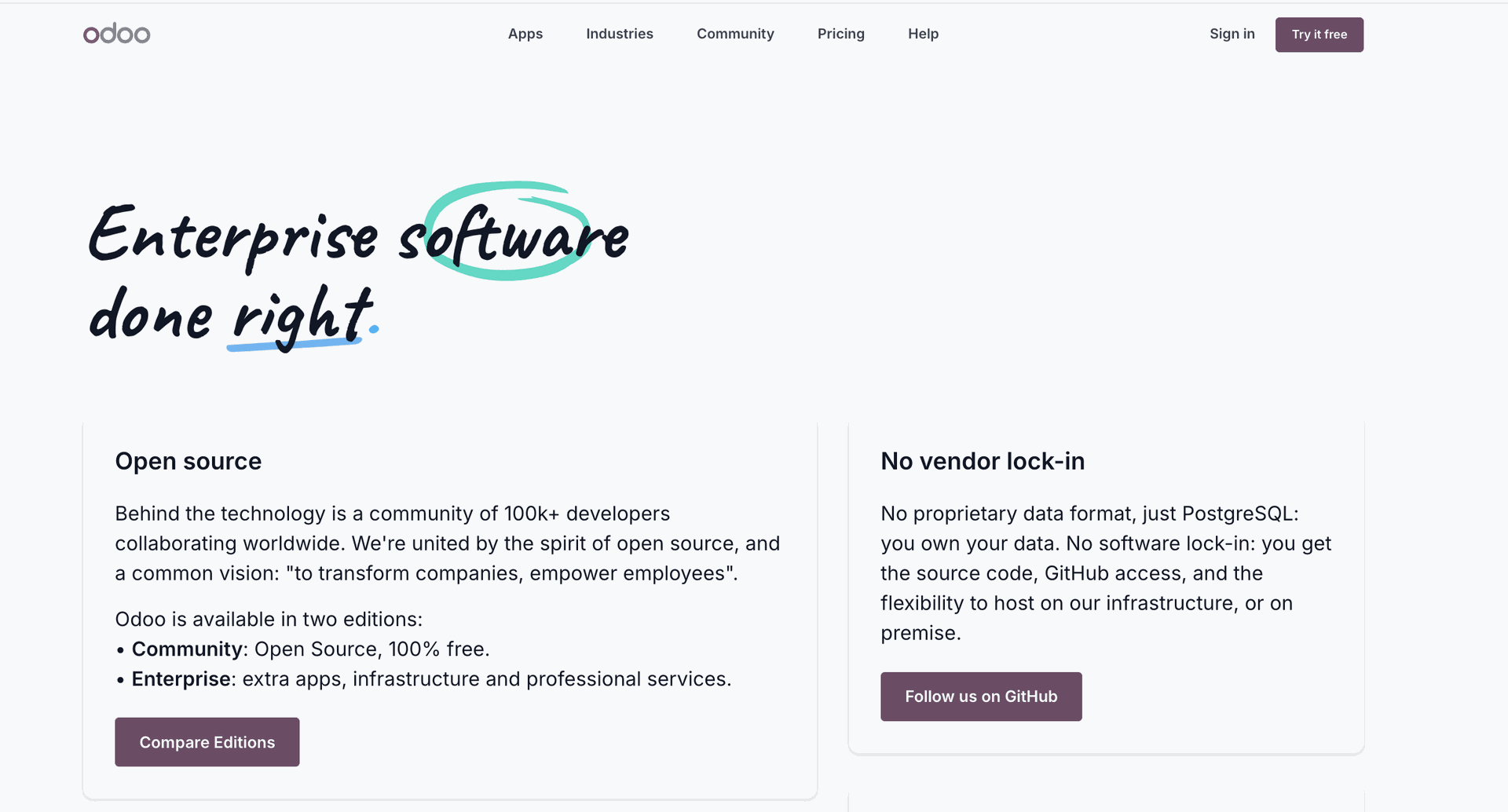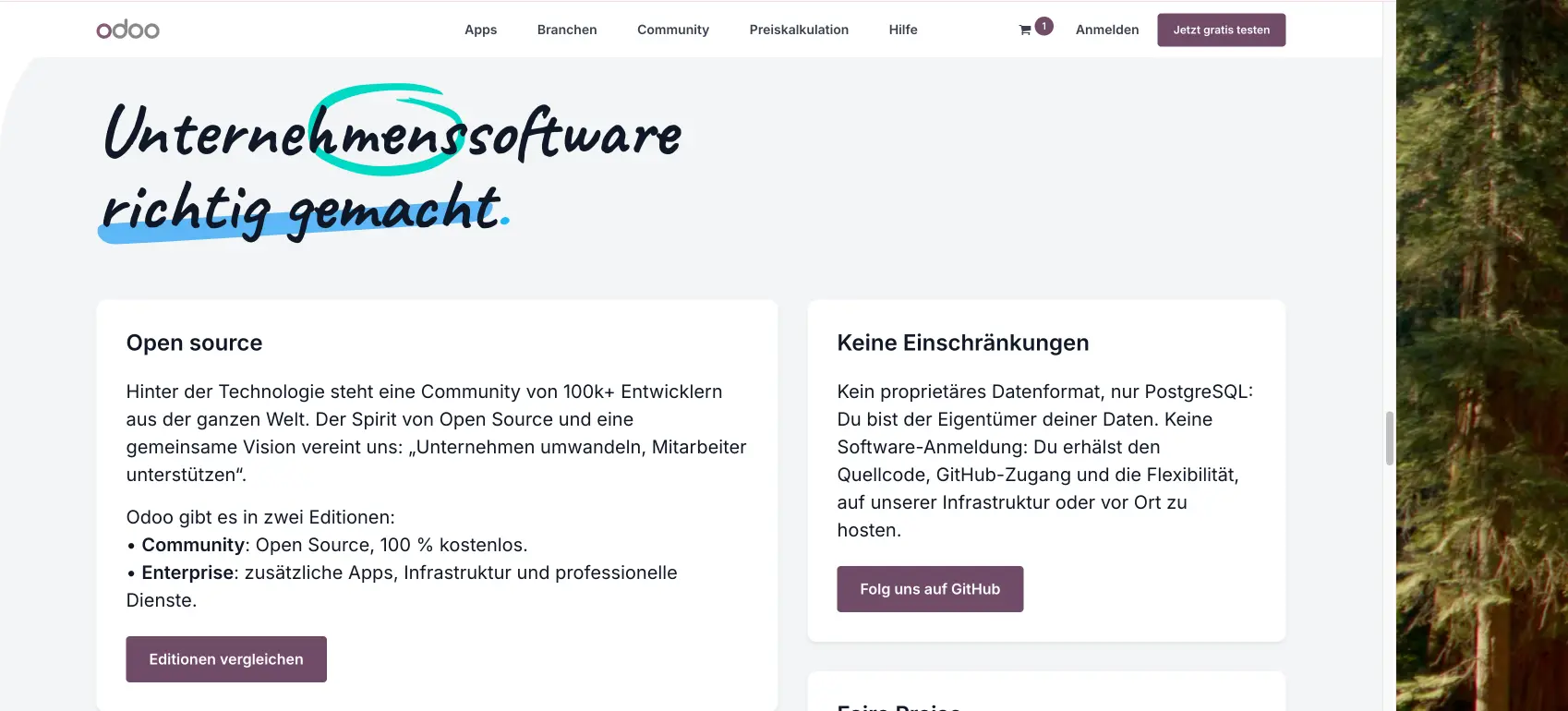Odoo is open-source, designed to be flexible & transparent. It thrives on these values with its extensive open-source community. But some partners take a different approach, distributing compiled files that lock you into their ecosystem and strip away the very benefits that make Odoo so powerful. If an Odoo partner is using compiled ".so" files, it’s a red flag. Here’s why.
The short answer
- Is using compiled customisations (“.so files”) normal in the Odoo world?
Definitely not. From experience less than 1% of partners do this practice. - Should you ever accept compiled customisations (“.so files”) in your Odoo project?
No. the risk is too high, the alternatives are plenty and you will save a lot of money long term. Take one of the other thousands of Odoo partners.
The long answer
Odoo is built primarily in Python. The source code is truly open source, fully available for review, modification and extension. This openness ensures businesses have full freedom & control over their ERP implementation, without being tied to a single vendor.
Being open source and avoiding vendor lock-in are core of Odoo’s official philosophy - more towards this later.

Statement from the official Odoo website

Statement from the official Odoo website
What are ".so" files and why are they a problem in Odoo?
Compiled “.so” files are binary files typically used in low-level system libraries, often to improve performance. They have many valid use cases. However, in the context of Odoo customisation modules, their use raises several serious concerns:
- Violation of Open Source Principles: The source code is no longer accessible, which contradicts the very essence of Odoo’s open-source philosophy.
- Issue analysis & bug fixing becomes a nightmare: When issues arise, it is impossible to inspect the code, diagnose the root cause, or apply quick fixes without the vendor’s intervention.
- Hosting Restrictions: Running compiled files may impose hosting limitations, as they are often built for specific OS versions, making it difficult to migrate environments. Usually it is impossible without collaboration of your existing partner, creating true vendor lock.in.
- Security Concerns: You have no visibility into what the code does—whether it includes backdoors, security vulnerabilities, or performance bottlenecks.
It is an unpredictable technical & commercial risk to have any “.so” files in your Odoo customisations. Every Odoo partner that acts in good faith will use licenses or code sharing agreements to avoid improper use of their intellectual property.
Violating Odoo’s philosophy
Odoo is more than just a software solution - it is a philosophy built on openness, collaboration, and fairness. Using compiled files goes against everything Odoo stands for. Open-source software ensures transparency, and compiled modules destroy this fundamental principle. Odoo’s open mindset and strong community of over 2,000 partners thrive on shared knowledge and collaboration, something that closed-source code actively undermines.
Another crucial principle of Odoo is freedom from vendor lock-in. The platform is designed to avoid proprietary data formats, restrictive APIs, and dependence on a single partner. By hiding their source code behind compiled files, a vendor is intentionally creating lock-in, ensuring that only they can provide updates, fixes, and modifications. This restricts your ability to switch providers, integrate with other tools, or even host your Odoo instance wherever you want.
Avoiding vendor lock-in & price gouging
Using compiled ".so" files is a clear strategy to create long-term vendor dependence. Once you adopt such a module, no other developer can maintain or modify it, meaning only the original vendor can provide updates, support, and customisations. Usually, it is also not possible to remove such modules without losing data. This eliminates your ability to negotiate better pricing, seek external expertise, or migrate to another service provider.
This situation almost always leads to price gouging. The partner knows you are locked in, so they can increase service fees over time, knowing that you have no alternative but to continue paying. Worse, if they decide to discontinue support, your system could become outdated and unusable, putting your entire business at risk.
Odoo = Transparency & Freedom
If your Odoo partner insists on using compiled files or does it without previous discussion, you lose many of Odoo’s advantages. To keep your ERP system adaptable, secure, and free from unfair dependencies, always choose a partner who respects and upholds the core principles of Odoo. Anything else is a risk that could cost you in the long run.